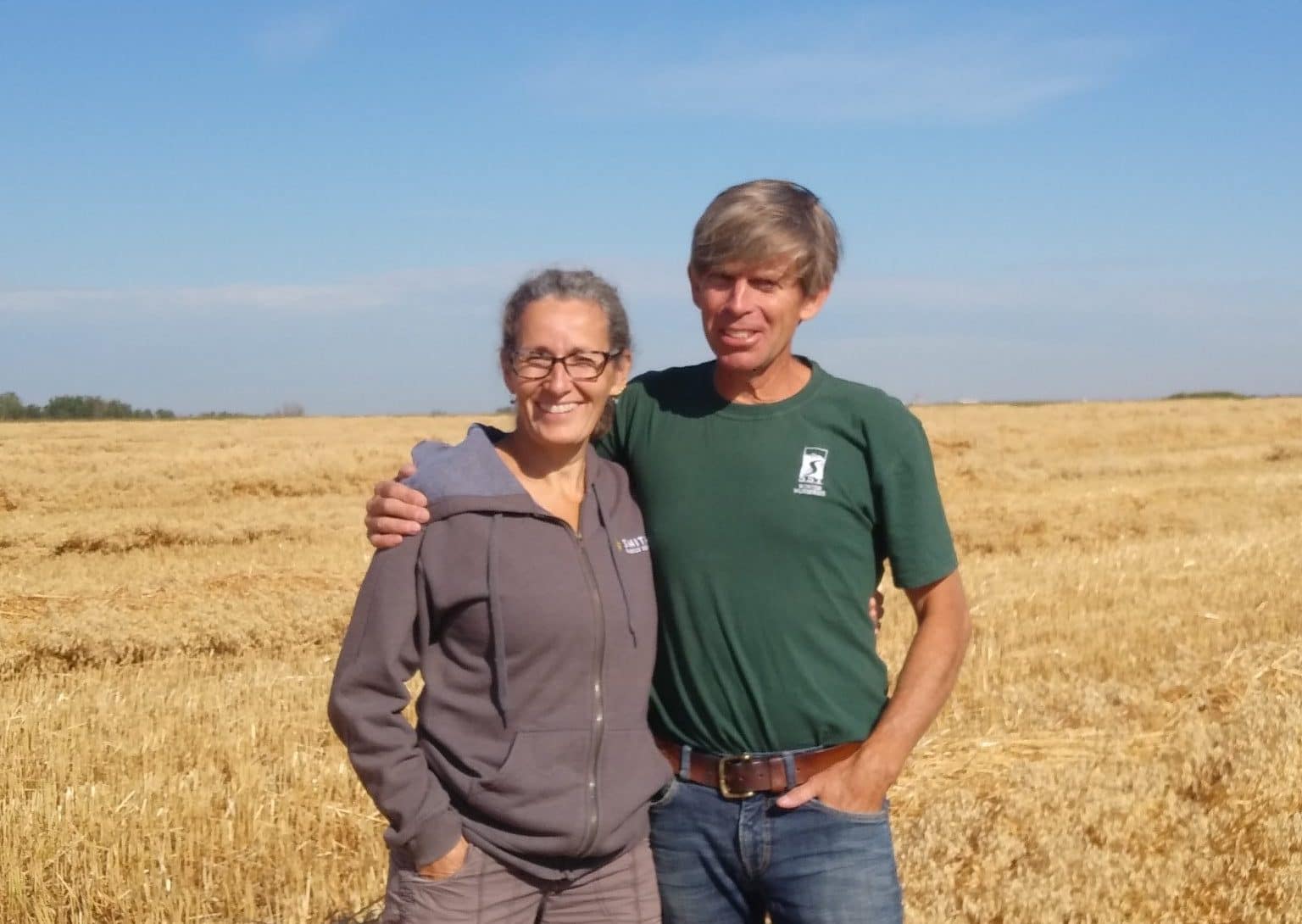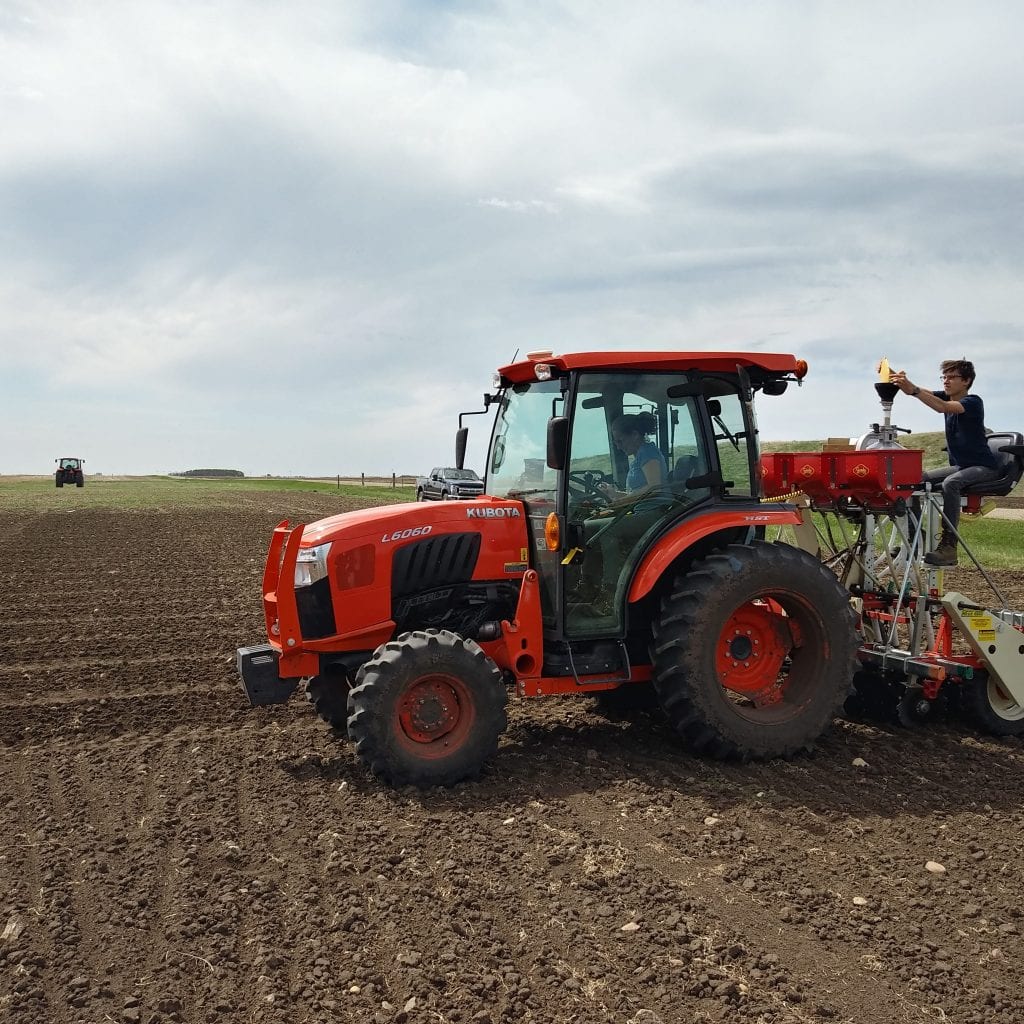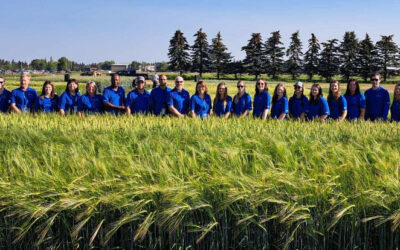After a decade spent in the lab and field, independent plant breeder Jim Dyck is finally seeing the fruits of his labour with his oats in fields across the Prairies.
Jim Dyck’s interest in plant breeding started decades ago at the University of Manitoba. The university student had grown up on an acreage just outside of Winnipeg, Man., and didn’t exactly know what he wanted to study, so he signed up for an agriculture degree.
“There was a plant breeder, her name was Dr. Anna Storgaard, who was teaching plant breeding courses,” Dyck says in a phone interview. It “was sort of inspiring, just the way that plant breeding could shape a crop and provide value for humanity.”
He followed his degree up with a stint working at a research company and then moved on to United Grain Growers (UGG), which later became Agricore United and then Viterra. He worked there as an agronomist and moved to Saskatoon, Sask. During his time with UGG and Agricore United he did some plant breeding work and obtained a master’s degree from the University of Saskatchewan.
“I had the chance over the years to do a little breeding in canola and flax and wheat, barley — just through dabbling with certain people who I was working with,” Dyck explains. “It became a fascination that I didn’t even realize was building.”
In 2008, Dyck realized his heart was with plant breeding and he decided, along with his Laura-Lee and four children — Lauren, Elena, Graeme and Colin — to start their own oat breeding operation called Oat Advantage.
The Family Business
Starting a private plant breeding operation isn’t easy. Profits don’t happen until after crop varieties are released, which takes at least a decade to happen.
For Dyck, he was lucky to have industry support. SeCan was quick to throw their backing behind him and provide funding. Grower groups throughout Western Canada also wrote some cheques, while milling and grain companies such as Richardson International and General Mills, provided some financial backing.
His family also stepped up to the plate. When Dyck started Oat Advantage, he knew he wanted to keep it a small family operation. His wife and kids all helped to run the plots and assist in plant breeding. He also worked with researchers at Agriculture and Agri-Food Canada and the University of Saskatchewan.
I’ve learned to “continue to be friends and to make friends. To just work together on oats as much as possible even while you’re competing,” Dyck explains. “You can sort of be a friendly competitor.”
Dyck decided to focus on oats as he had enjoyed working with the crop at previous jobs. Globally oat research was on the decline in 2008 and he thought there was still a lot that could be done with the cereal crop. Over the decade, Dyck focused his breeding efforts on grain quality and bringing more value to oats, while also increasing yields.
While Dyck was working away in his fields, oats were starting to make headlines worldwide driving up demand for them. The cereal crop had caught the attention of the health food sector, with oat milk becoming a popular dairy substitute. International coffee chain giant Starbucks even added oat milk to its menu.
Variety Release
Dyck’s first two varieties ORe3541M and ORe3542M hit the market through SeCan in Alberta, Saskatchewan and Manitoba in the 2019-20 crop year. In the first year around 100,000 acres of the two varieties were planted with acreage increasing for the 2020 growing season.
The farmers “like the standability, the earliness and the yield has been surprising considering how early they are,” Todd Hyra, SeCan business development manager Western Canada, says in a phone interview.
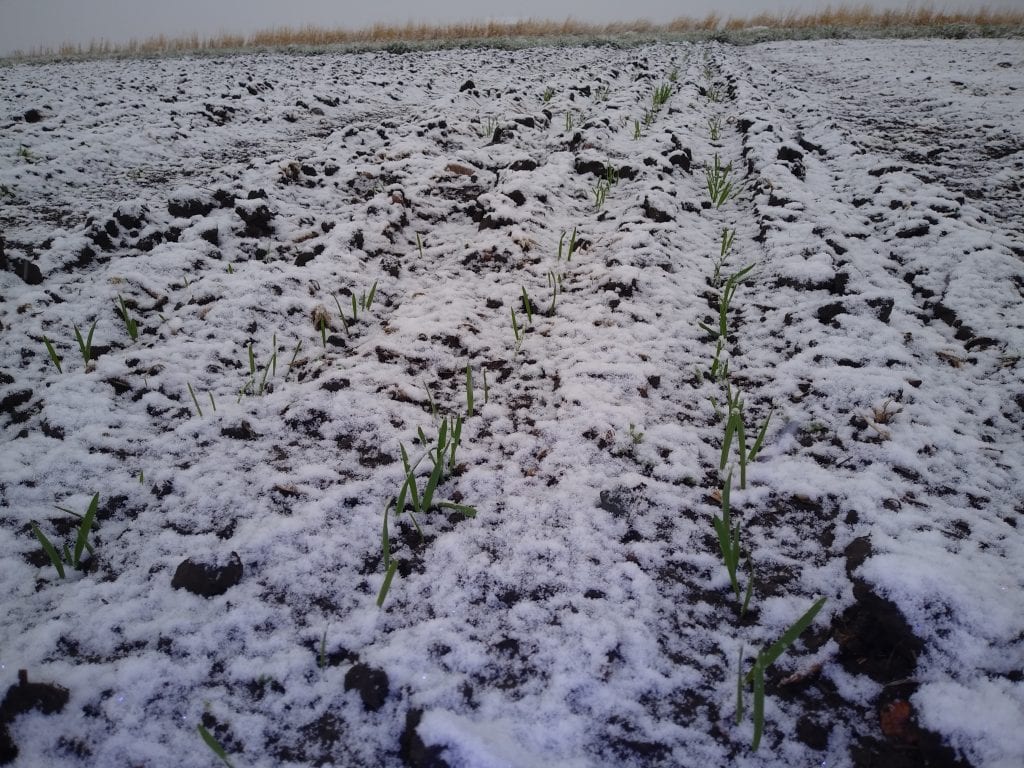
An oat trial during early spring at Oat Advantage. The oats went through some tough nights during the spring but have built in genetic cold tolerance. Photo: Jim Dyck
ORe3541M fits best in the eastern Prairies, Manitoba specifically, while ORe3542M is well adapted to all three prairie provinces. Due to the wet and conditions during the fall of 2019, some fields of Dyck’s varieties were left out over the winter in Alberta. The farmers “still got a decent yield and good grain quality,” Dyck says.
Over the winter both varieties were approved for milling by Richardson International and General Mills, which was a huge step for Oat Advantage.
Being an Independent Breeder
Despite having a few oat varieties out in fields and finally having some income coming in, it hasn’t been a walk in the park for Dyck as an independent breeder.
“It’s super risky. I knew from the beginning. I thought that things would be easier. It’s such a long process to get going,” Dyck says.
There aren’t many independent breeders in Canada. SeCan works with a few out of Europe and has been talking with Jodi Souter in Saskatoon who has started her own operation
This could change though if the Variety Use Agreement (VUA) becomes a reality. The seed use payment program is currently in trial stages with a few crops — it sees breeders paid a fee when growers use farm-saved seed.
Farmers have been weary of the VUA and Dyck understands their concerns. When he started his operation in 2008 the VUA wasn’t a reality so Dyck knew the way to earn an income would be to produce a good variety which would make people want to buy certified seed.
However, if the VUA does happen it would help Oat Advantage to do more innovative work faster. Dyck would be able to upgrade his equipment more frequently and use newer technology. He would also be able to extend his growing season by travelling to places like New Zealand during the winter regularly.
“I can also see the resistance by grower groups because it seems like they’re already paying for things,” Dyck explains. “Maybe they would wonder about whether they get anything for the dollars they that put into that. I believe that they would. I believe that we would be able to deliver more value on that.”
The Future
Dyck is excited about the future of Oat Advantage though no matter what happens. He has numerous oat varieties in development and can’t wait to get them in the fields of growers.
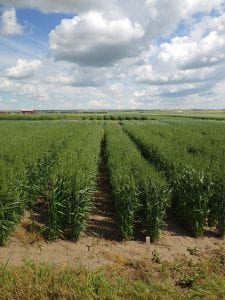
2000 hand planted high protein oat hills in the foreground at Jim Dyck’s Saskatoon research farm. Photo: Jim Dyck
In Alberta, he’s looking at making faster maturing varieties for the northern part of the province and into the territories. He is also looking at hull less varieties for northern areas which aren’t near mills — this would allow people to cook oats without having to dehull them first.
The early maturing varieties aren’t just helpful for northern areas with shorter growing seasons but also as growers are forced to move away from using pre-harvest glyphosate applications. Milling giants Richardson International and General Mills have both said they will not buy oats sprayed with glyphosate making a faster maturing variety a good fit.
He is also working on high value milling oat varieties and forage oat varieties for Alberta. With Alberta’s unique weather challenges, oat varieties in the province need to be hardy, Dyck says.
He has been working on reducing the itchiness of oats by breeding a hairless variety and he is also working on a new oat variety which doesn’t have a crease on it. This will make for a fuller oat making it heavier and take up more space.


